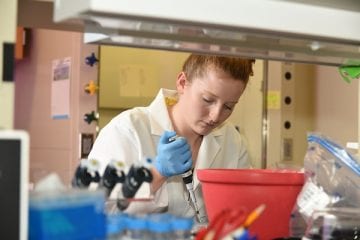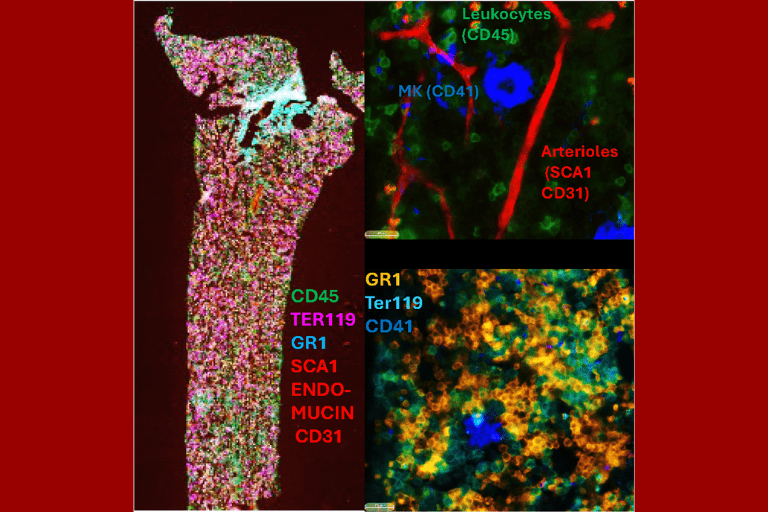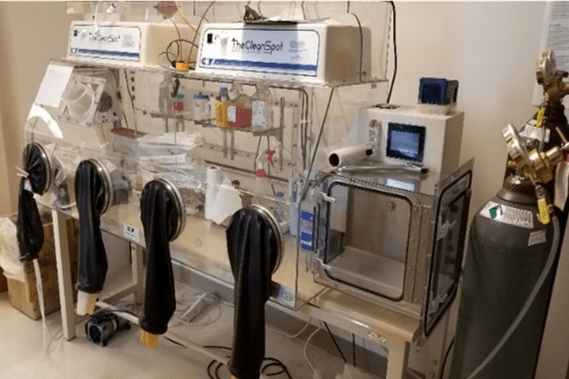The Indiana University School of Medicine Cooperative Center of Excellence in Hematology (IU-CCEH) brings together investigators whose research activities are focused on various aspects of nonmalignant hematology. The center supports three biomedical research cores that are essential to these investigators' research efforts. The center also sponsors a robust enrichment program to advance the development of students and early career members.

Experimental Mouse Resources Core
The Experimental Mouse Resources Core provides advanced resources for studies using mice for murine and human transplantation models. The core maintains on-site breeding colonies of essential mice to study human and murine hematopoiesis in vivo such as NSG and NRG mice and provides specialized services including irradiations, transplantations, serial sampling, and compound dosing. The core serves as an educational resource and works closely with the Flow and Tissue Cytometry and the Hypoxia Cores.

Flow and Tissue Cytometry Core
The Flow and Tissue Cytometry Core supports investigators with critical flow cytometric techniques and procedures and allows investigators to extend their interrogation of hematopoietic cells to include quantitative analyses of the spatial distribution of HSC with other cells during different conditions of nonmalignant hematopoiesis. Using the core, investigators across the country can apply an integrated and economical approach to their studies in nonmalignant hematology.

Hypoxia Core
The Hypoxia Core supports and enhances research efforts in nonmalignant hematology for better in vivo understanding of phenotypic and functional cellular, molecular, and biochemical aspects of hematopoietic and Immune cells. This involves regulation of normal hematopoiesis and pre-leukemia in the context of their lowered oxygen environment in vivo. Collection and processing of stem cells in the core will prevent cells from exposure to Extra Physiological Shock/Stress (EPHOSS) that is detrimental for their survival and function.

